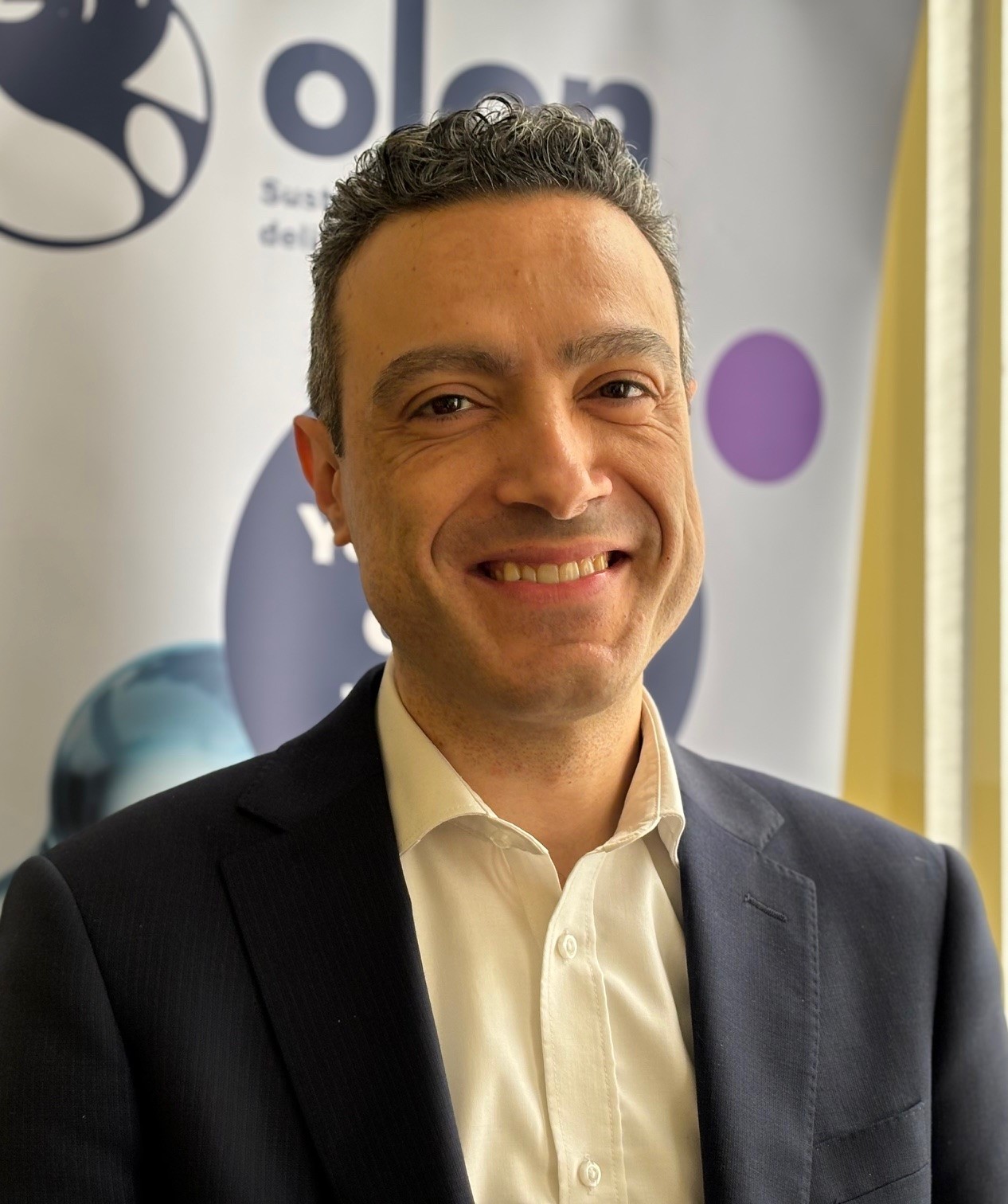As leaders and innovators across the global pharmaceutical manufacturing industry come together in New York City for DCAT Week 2024, Olon is proud to have recently announced its ongoing partnership with Antheia. Antheia is the next-generation pharmaceutical ingredient producer transforming essential medicine supply chains to end drug shortages.
Following last week’s announcement, we sat down with Andrea Conforto, VP of CDMO at Olon Biotech, to ask about his work at Olon, the value of the Antheia partnership, and where the pharmaceutical manufacturing industry is headed in the future.
Tell us a bit about your background and what brought you to Olon Group.
I’ve spent the last 20 years working in the biotech and CDMO field. My work has spanned everything from process engineering and project management to cost management and business development. Over the last decade, I have focused on the business side of biotech, and joined Olon seven years ago to support the company’s growth in the biotech space. I currently lead the CDMO biotech division, overseeing the business development team and collaborating as part of the M&A team. I was also part of the M&A team involved in the acquisition of Capua BioServices s.p.a., which is now one of the most important CDMO biomanufacturing sites within Olon’s network.
How did the Olon team come to work with Antheia?
We first connected with Antheia in 2021 during an industry event in the U.S. After that first interaction, we set up an introductory call with our technical teams and immediately recognized the value of Antheia’s technology. We saw the potential for Antheia to fit into Olon’s manufacturing infrastructure, and knew our high-value expertise could help Antheia move its biosynthetic APIs from the lab to industrial scale. We entered into an initial partnership in 2022, and will now continue our collaboration in 2024 and beyond.
Given Olon’s extensive experience in biomanufacturing, how do you view the role of fermentation in the pharmaceutical industry?
Olon today is a globally-recognized, reliable partner for innovative companies working in the biomanufacturing space, ranging in size from small startups to medium and large businesses. We support our partners at each stage of the project, from development and scaling up, to industrial scale production for early clinical stage up to commercial stage. Our biotech division has more than 50 years of experience providing high-quality fermentation manufacturing services, and we are a globally licensed API manufacturer. Fermentation technology is a major part of the overall pharmaceutical supply chain, and it has the potential to help end shortages of essential medicines. We are excited to lead the way with partners like Antheia.
Why is this ongoing partnership important for the future of pharmaceutical manufacturing?
This collaboration between Antheia and Olon is extremely important for the pharmaceutical industry. By combining Antheia’s synthetic biology technology with Olon’s manufacturing assets and experience, we can produce essential medicines more sustainably and responsibly. Our collaboration will help fortify the current fragile and sometimes unpredictable supply chain of APIs sourced from nature. We were an important partner during Antheia’s recent commercial milestones for thebaine, and look forward to working with Antheia on its broader pipeline of biosynthetic KSMs and APIs in the future.
How is Olon helping companies like Antheia strengthen the pharmaceutical supply chain and end drug shortages?
As with our partnership with Antheia, we support pharma companies in developing, optimizing and manufacturing a wide range of molecules including small molecules, peptides, enzymes, therapeutic proteins, and antibody fragments. Our biomanufacturing sites are located in Italy and our work with Antheia will be located at our Settimo Torinese site (located close to Turin), which offers 4,500 cubic meters of total fermentation capacity, operating in compliance with current cGMPs and meeting the highest quality standards. Our work together will play a key role in making pharmaceutical supply chains more resilient for the critical healthcare systems that rely on it.

